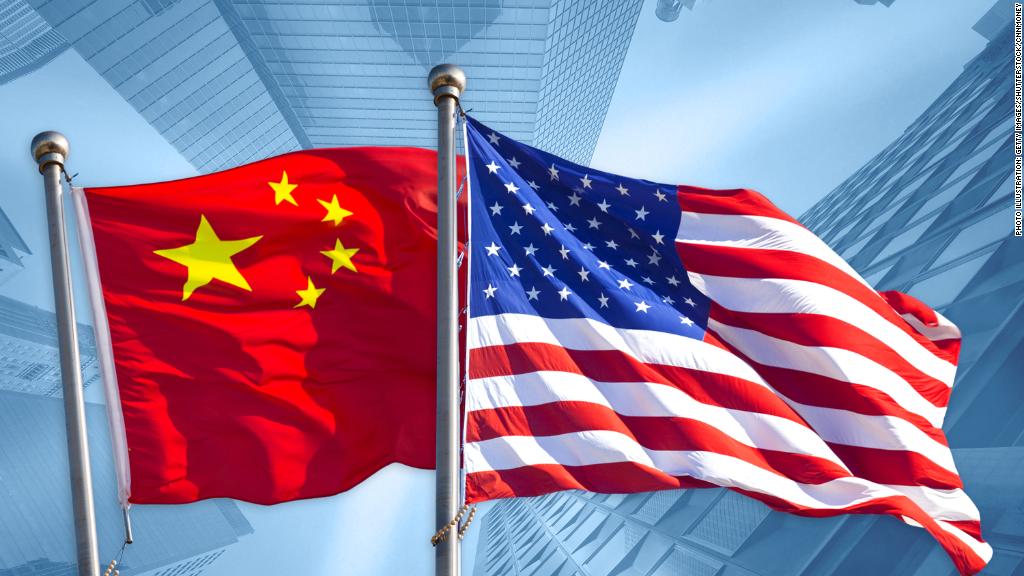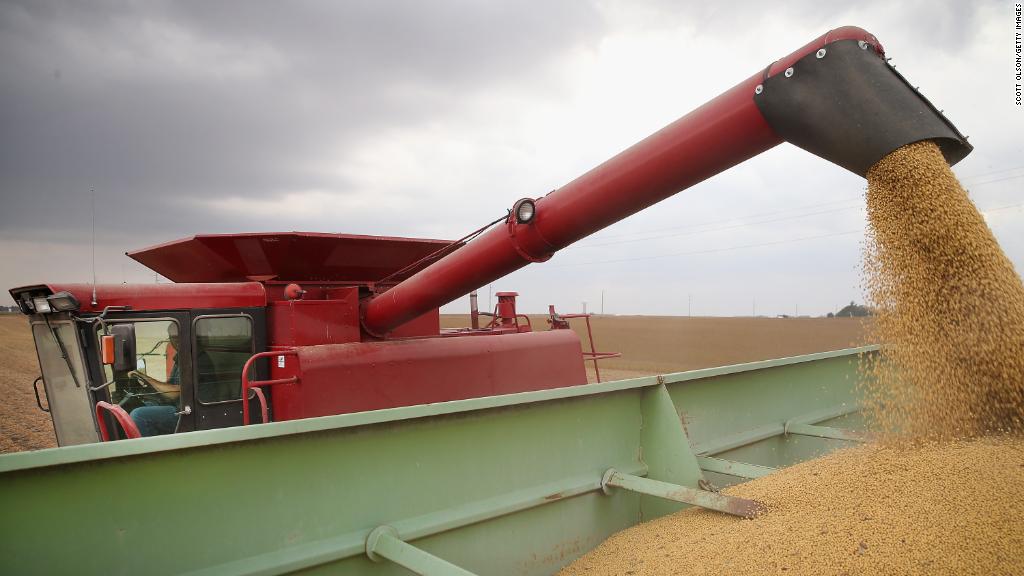
Escalating tensions with the United States may put China's trade war arsenal to the test.
During a dizzying week in which the world's two largest economies exchanged threats of heavy tariffs, Beijing has insisted that it's ready to wage a trade war "to the end."
President Donald Trump upped the ante late Thursday with a threat to slap tariffs on a further $100 billion of Chinese exports. That prompted the Chinese government to warn it's willing to take "new comprehensive measures" in response.
But China faces a problem: it ships far more goods to the United States ($505 billion last year) than come back in the opposite direction ($130 billion). That leaves the US government with a lot more Chinese exports to potentially target with tariffs.
If China "were to try and respond in kind, there would not be enough US goods to tariff," said Alex Wolf, an emerging markets economist at fund manager Aberdeen Standard Investments.
Have questions about China, tariffs and a possible trade war? Ask them here
Beijing already announced plans earlier this week for steep new tariffs on $50 billion worth of major US exports, including planes, cars and soybeans. But beyond those measures, it still has "many options" for responding to further US measures, said Larry Hu, a Hong Kong-based economist at investment bank Macquarie.
They include targeting the trade in services between the two countries rather than physical products. That means things like tourism and education, industries from which the United States benefits a lot more than China does.
Targeting tourism
More than half of the $39 billion US surplus with China in services comes from spending by Chinese citizens on travel to the United States and on attending American schools and colleges, according to investment bank Nomura.
China has a recent track record of using its tourists as an economic weapon.
Last year, it squeezed the economy of South Korea, which had angered the Chinese government with the deployment of a US missile defense system.
Related: Trump threatens China with new $100 billion tariff plan
The measures included an unofficial order to Chinese travel agencies to halt tour groups to South Korea. That prompted Chinese tourism to the country to almost halve within a matter of months, hurting South Korea's hotels, duty free stores and other travel-related businesses.
US companies in China at risk
China could also take another page out of the playbook it used on South Korea by making life difficult for big US companies operating in its territory.
During the tensions with South Korea, Chinese officials closed down dozens of stores belonging to Lotte, a big South Korean conglomerate. The sales of South Korean auto brands Hyundai (HYMTF) and Kia also plunged in China as state-run media helped whip up anti-South Korean sentiment.
If Beijing's trade tit-for-tat with Washington keeps escalating, some experts think American companies doing business in China should buckle up for a rough ride. The fast growing Chinese economy is a massive market for top US brands such as Apple (AAPL) and Starbucks (SBUX).
"Much fewer Chinese companies have large operation in the United States," said Hu, the Macquarie analyst.

Aberdeen's Wolf said Chinese authorities could make life difficult for American companies operating on its turf by using selective enforcement of regulations, such as fire codes and food safety, as a means to shutter parts of their operations.
Such moves would have consequences for China's economy, though. Large numbers of Chinese citizens work in assembly plants for Apple products or in Starbucks stores across the country.
Related: How tariffs on China could make your life more expensive
Some of the tariffs China already announced may also cause complications by pushing up prices.
"Imposing tariffs on soybeans looks problematic," said Julian Evans-Pritchard, a China economist at research firm Capital Economics, in a note to clients. American soybeans imports are cheaper than the Chinese equivalent because of more efficient processing. And other countries don't produce enough soybeans to meet Chinese demand either, he added.
China's 'cool-headed approach'
Experts say there are some steps that China could theoretically take to punish the United States that are too risky to consider.
China is the biggest foreign holder of US Treasury debt, owning about $1.17 trillion. A report by Bloomberg in January rattled markets by suggesting China was considering cutting back on the amount of US debt it buys, pointing to trade tensions as one of the reasons.
Investors worry that if China purchases fewer Treasuries, the US government would have to find alternative buyers. That could prompt a rise in the rate of interest it pays and increase the cost of serving America's vast national debt.
Related: US-China trade war fears: How bad could this get?
But it would hurt China too. A fire sale would also hit the value of China's Treasury holdings and may even end up destabilizing China's currency against the dollar.
"China's policy makers will take a cool-headed approach," Hu said. "It's unlikely for them to take extreme steps such as dumping US Treasuries."


